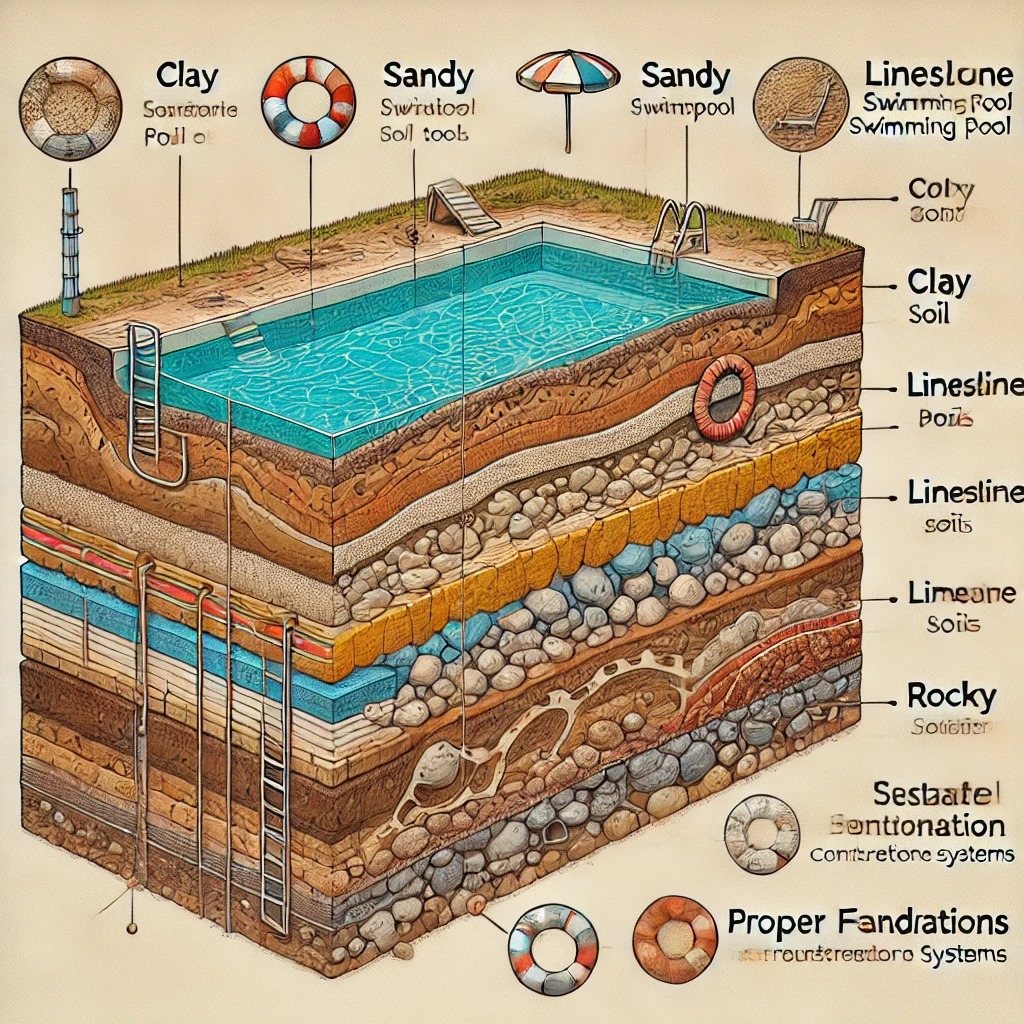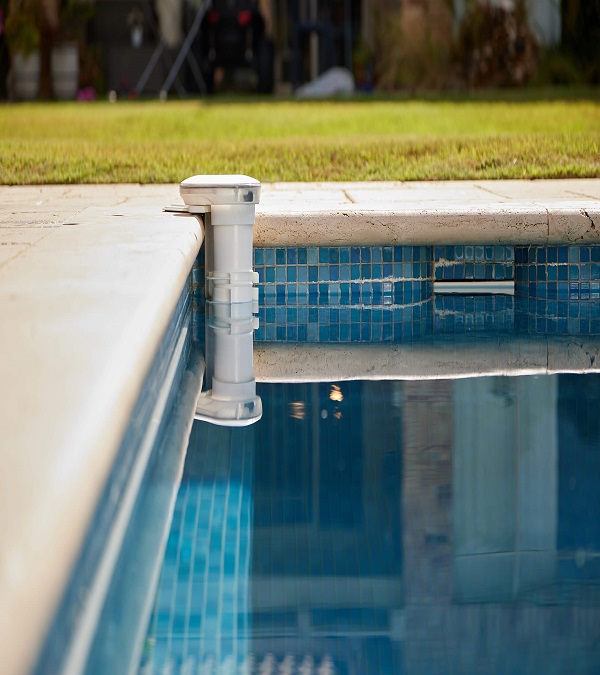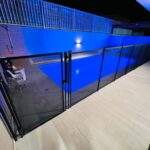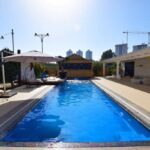Liam Pools designed to last, built to enjoy Contact us...
Read MoreWater Treatment in Swimming Pools - LIAM POOLS Guide for Cyprus
A home swimming pool is one of the greatest luxuries that can enhance family life, especially in the Mediterranean climate of Cyprus. However, alongside the enjoyment, there are challenges and risks related to maintaining the water quality. Pool water requires ongoing treatment to ensure pleasant and safe use, especially in hot climates like Cyprus, where UV exposure and high temperatures demand more diligent maintenance.
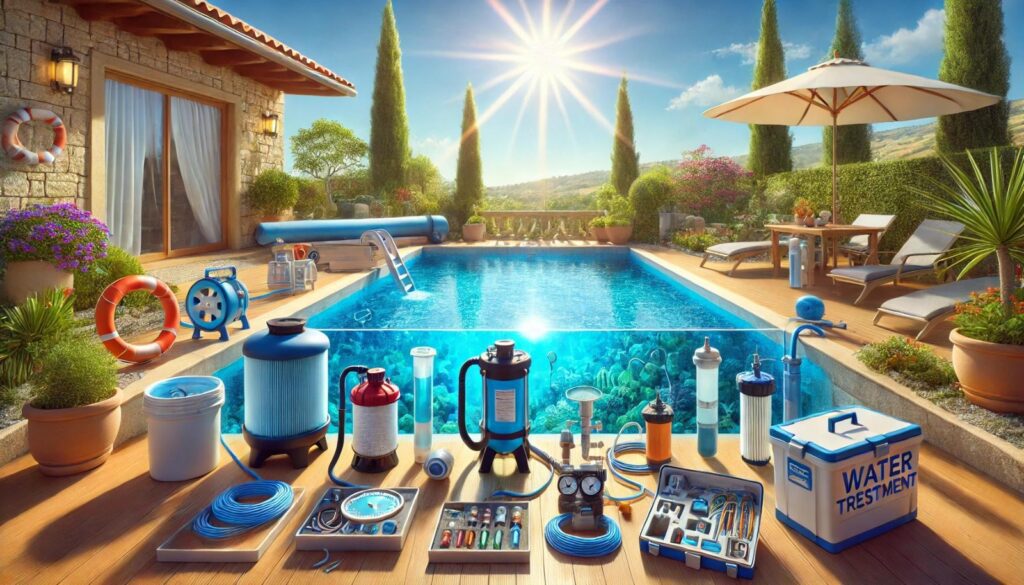
Why is Proper Water Treatment Important in Cyprus?
In Cyprus, the strong sun and high temperatures can accelerate water evaporation and the accumulation of dirt. The Mediterranean climate combines humidity and intense sunlight, increasing the likelihood of algae growth, bacteria formation, and imbalanced chlorine levels. However, with proper water treatment, you can enjoy your pool for years without wasting water or resources.
Key Principles of Pool Water Treatment:
1. Proper Water Circulation:
Water circulation is one of the most critical aspects of keeping pool water clean and preventing the buildup of debris. The inlet system (jets) distributes the water evenly after it has been purified in the machine room. Proper circulation ensures a continuous water flow, preventing “dead zones” where bacteria or algae might form.
2. Water Disinfection – Saltwater or Freshwater:
Saltwater System: In this system, salt is broken down by an electrode, converting it into chlorine (which disinfects the water) and sodium (which gives the water a shiny, smooth feel). This system is perfect for Cyprus’ hot climate, providing effective disinfection with minimal maintenance.
Freshwater System: For those who prefer to use freshwater, it’s recommended to manually add chlorine tablets to the skimmer on a weekly basis. An upgrade to an automatic chlorinator is possible, but the costs are often not justified for residential maintenance.
3. Covering the Water:
Especially in hot regions like Cyprus, it’s recommended to cover the pool when not in use. The cover prevents water evaporation and maintains a balanced water temperature. Additionally, the cover protects the pool from dirt, dust, and insects, which can overload the pump and filters and alter the pH and toxin levels in the water.
4. Periodic Water Testing:
It is essential to periodically test the water’s toxin and pH levels. Using simple home test kits, you can check the water’s quality every 45 days, ensuring safe and healthy water for swimming.
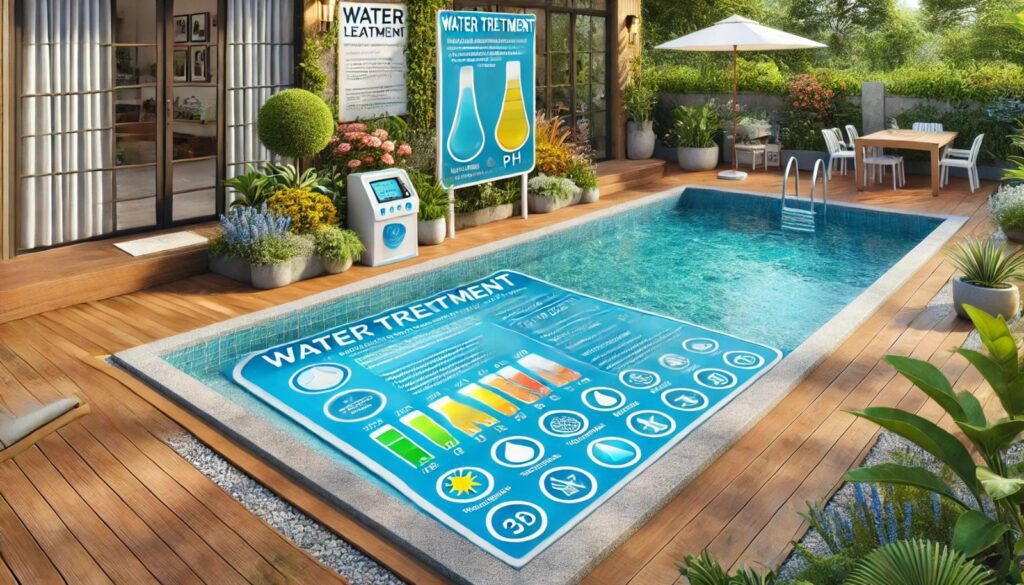
Additional Recommendations for Pool Management in Cyprus:
- Clean filters and pumps more frequently during the summer, when pool usage increases.
- Use automated systems to monitor chlorine and pH levels to save time and ensure water health.
- If the pool will not be in use for extended periods, take extra precautions, such as adding preservatives and additional disinfectants.
Conclusion:
Maintaining the quality of the water in a home pool in Cyprus is a task that requires attention but is essential for enjoyment and safety. At LIAM POOLS, we provide all the technological and maintenance solutions needed to keep your water at the highest quality, taking into account the unique climate conditions of Cyprus.
LIAM POOLS – Leaders in fiberglass swimming pools in Cyprus, with a focus on high-quality water treatment and maintenance solutions year-round.
Soil Types in Cyprus and Their Impact on Fiberglass Swimming Pool Construction
Liam Pools designed to last, built to enjoy Contact us...
Read MoreFiberglass Pools – The Perfect Choice from LIAM POOLS
Liam Pools designed to last, built to enjoy Contact us...
Read MoreWater Treatment in Swimming Pools – LIAM POOLS Guide for Cyprus
Liam Pools designed to last, built to enjoy Contact us...
Read More